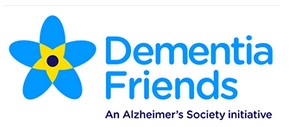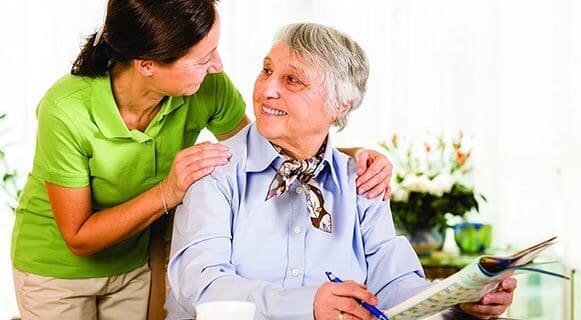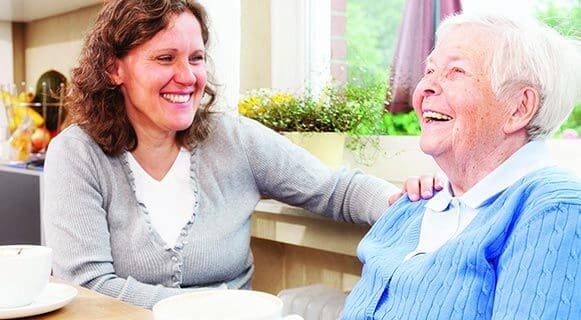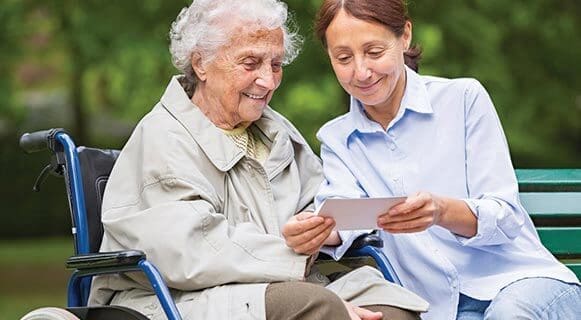A Care at home service for those with poor mobility and frailty
As an ageing population, life expectancy is increasing and higher numbers of older people are now living with poor mobility and frailty. Frailty is not an illness, it is a loss of resilience which means those living with frailty do not recover as quickly after an illness or accident.
It is not fully understood how frailty develops. However in clinical terms it is related to the ageing process in which multiple body systems gradually lose their in-built reserves.
- A quarter of the population over the age of 85 are frail
- Frailty tends to be more common in women (ELSA (2016))
- Signs of Frailty are poor mobility and difficulty doing everyday things
- 5% of people aged 60-69 have frailty
5 signs of frailty and loss of mobility
There are 5 frailty syndromes and any of these should raise concerns about the individual However, it is possible to have any of these problems without frailty and sometimes there can be a very straightforward explanation for the problem. Frailty could mean that infections could manifest themselves in a patient with frailty as a sudden change in mobility. Additionally, a fall could indicate serious underlying illness and it will not be possible to make this decision without the person seeing their GP.
- Falls (e.g. collapsing, legs giving way, found lying on the floor) etc)
- Immobility (e.g. sudden change in mobility)
- Delirium (e.g. confusion, sudden worsening of confusion in someone with previous dementia or known memory loss).
- Incontinence (e.g. change in continence – new onset or worsening of urine or faecal incontinence).
- Susceptibility to side effects of medication (e.g. confusion with codeine, hypotension with antidepressants).
Older persons may not recognise themselves as living with frailty and research has shown that older people do not want to be considered ‘Frail’. At Ivy Palmer, it is our mission to ensure that those living with frailty, restore control, preserve dignity and facilitate person-centred care to the older person living with frailty and those close to them.
We also understand those living with frailty become more at risk of a fall. In fact, around one in three people over 65 who live at home will have at least one fall this year. About half of these will have more frequent falls too. Of course, there’s always the risk of broken bones or more serious injuries. But falling can also cause people to lose their confidence, become withdrawn and lead to a loss of independence.
Here at Ivy Palmer, we’ve produced this short guide to help you reduce your risk of falling. To download this guide click here
If you’re looking for more support at home on a short or long-term basis – then our living-in carers can help at home. To find out more call: 0330 053 5014 or contact us via the form on the home page and we will be in touch





